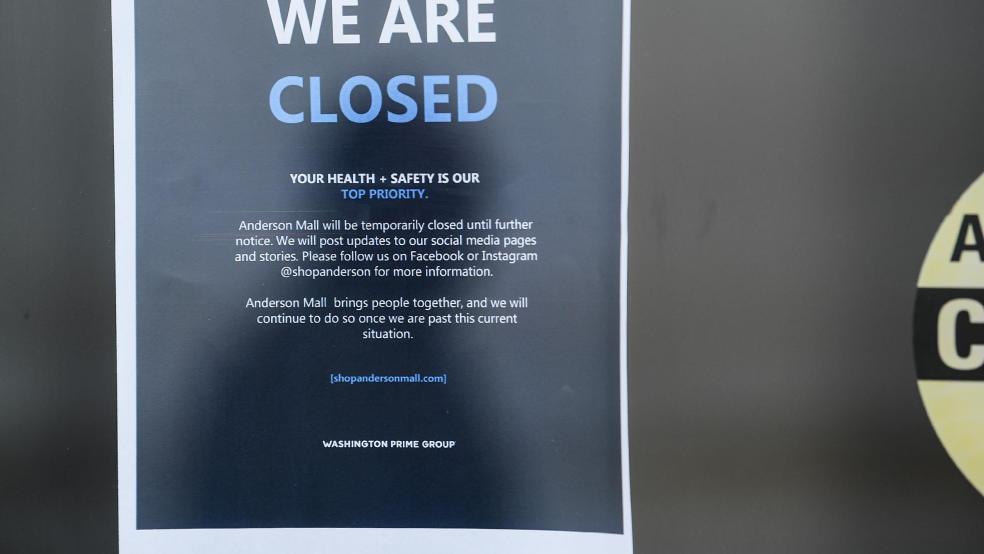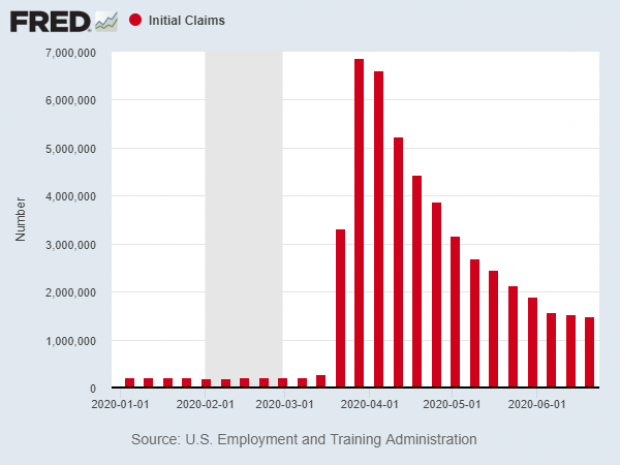Nearly 1.5 million people filed for state unemployment benefits last week, the Department of Labor announced Thursday, bringing the 14-week total for first-time claims to about 47 million.
The latest data shows that new unemployment claims continue to move lower – but just barely. Initial claims peaked at 6.9 million in late March and have fallen every week since, but the latest figure of 1.48 million was higher than expected and marks the 14th week in a row that more than 1 million people have made a claim for state unemployment benefits.
The aggregate numbers are considerably worse. In addition to state initial claims, about 730,000 people applied last week for Pandemic Unemployment Assistance (PUA), a temporary program created by Congress for workers who ordinarily do not qualify for unemployment payments.
Taken together, that brings the week’s total of first-time jobless claims to about 2.2 million.
Joseph Brusuelas, chief economist at the consulting firm RSM, said Thursday that by his calculation, more than 2 million people have filed for unemployment aid of some kind every week for the past 10 weeks.
Worries about a stall: The improvement in the job market appears to have slowed, said Bloomberg’s Katia Dmitrieva, even though it’s clear that some businesses are rehiring. “It looks like jobless claims declines have stalled. Signals a few things: huge churn in labor market (hiring vs. firing), and that second wave of layoffs in white collar jobs and non-restaurant/retail.”
The job market is “not really improving,” said Heidi Shierholz of the Economic Policy Institute. “I do think that people are getting hired back, but we are continuing to see an absolute hemorrhaging of jobs,” Shierholz told The Washington Post. “Just record levels of people.”
Implications for the next stimulus package: Some economists said the data shows that the economy will need more stimulus from Congress. “If one was looking for confirmation, on whether further aid for the unemployed and the economy is necessary, its sitting out in plain sight,” said RSM’s Brusuelas. “Aid for those negatively affected by the pandemic expires on July 31 which due to those waiting on confirmation is setting up as the most significant fiscal cliff in American economic history.”




